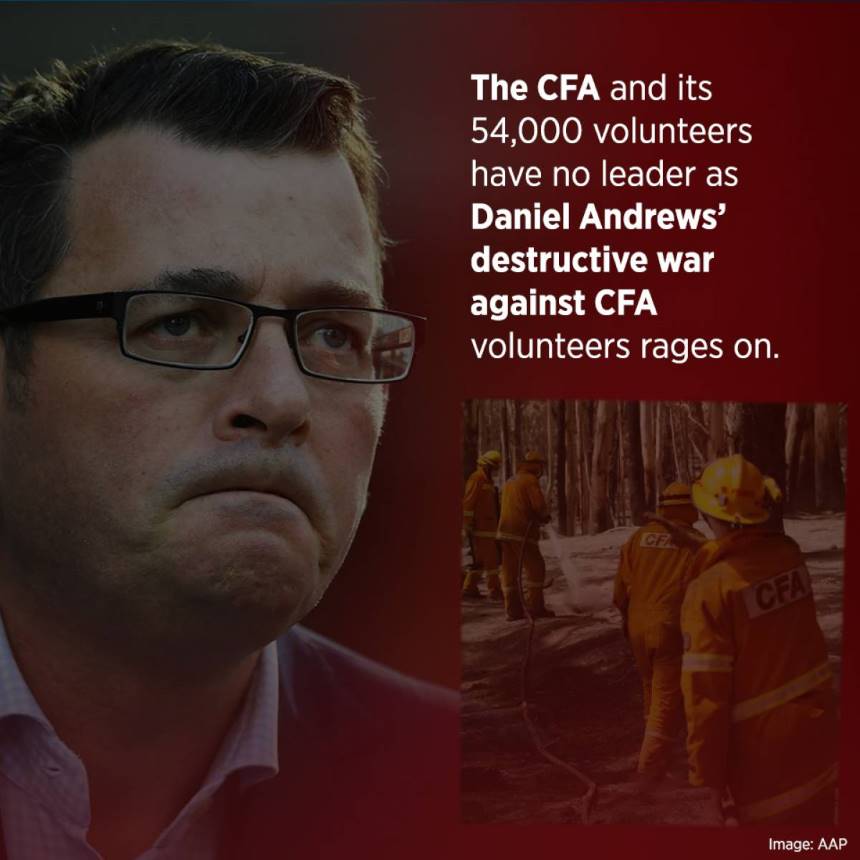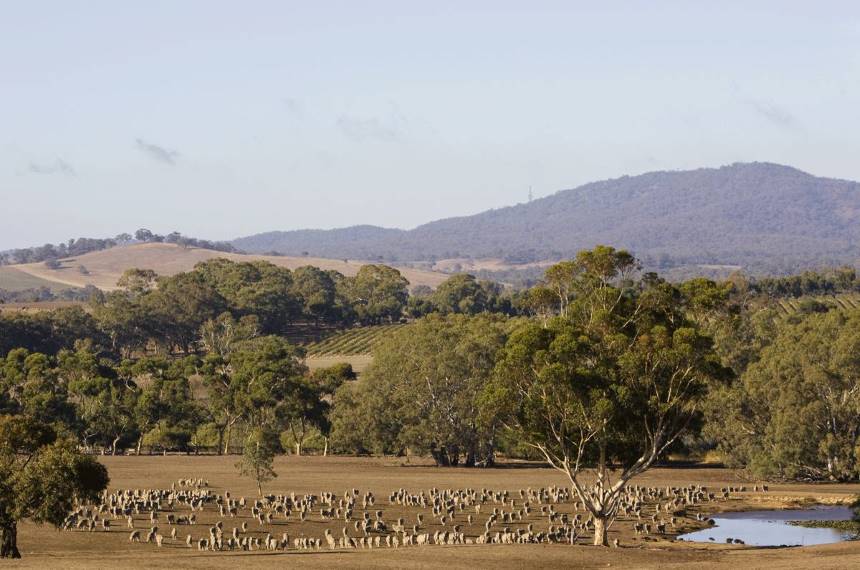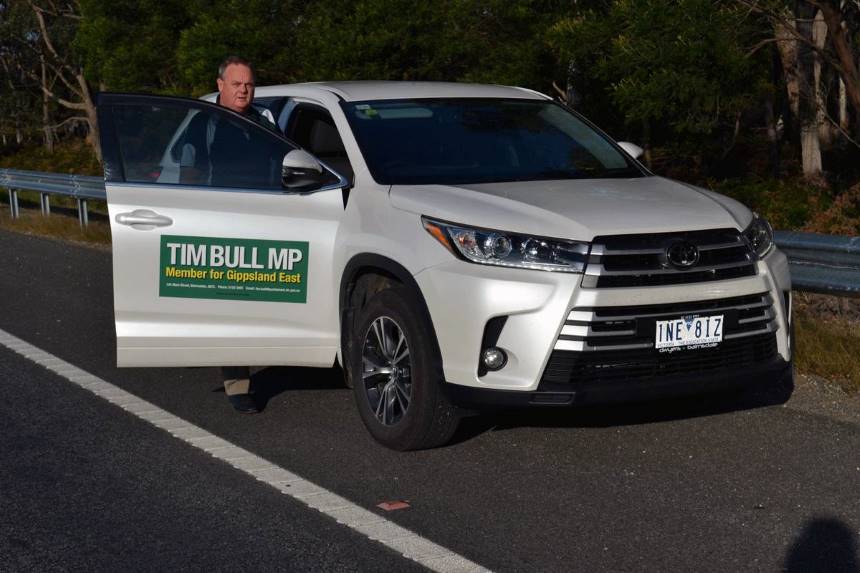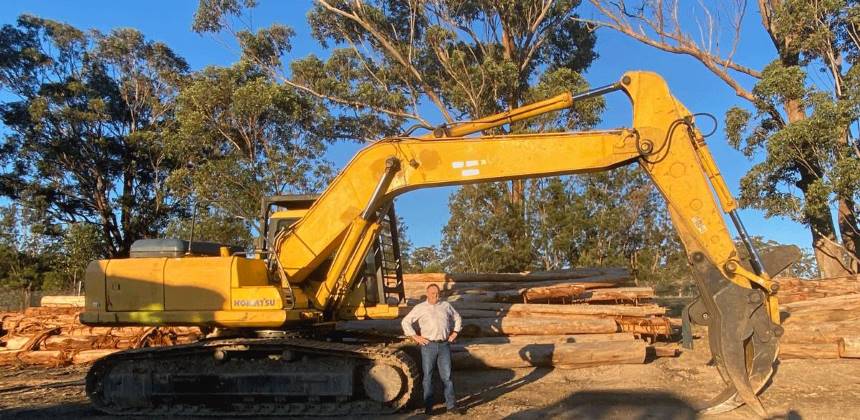Bull seeks $30m for regional recovery
Andrews dismantling CFA
Funding dries up for drought proofing water projects
Rural areas need their own COVID plan
Auditor General confirms barrier program a disaster
The Victorian Auditor General’s report into regional road safety barrier installations has confirmed what all East Gippslanders knew – it is a disaster.
Gippsland East Nationals MP, Tim Bull, said of major concern was that VicRoads had achieved exemptions to its own standards for the Princes Highway East.
“The Auditor General (AG) stated ‘wide offsets give vehicles room to safely pull over when they need to. If an offset is too narrow, then vehicles will intrude on the road lane when they pull over, which creates a traffic hazard. This is especially dangerous on single‐lane roads that have both a median and left‐hand side barrier’.
“We all know this, so why did VicRoads seek an exemption to make it less safe for our motorists? The answer was to keep the project within budget - so it’s here in black and white that VicRoads has sought exemptions to its own preferred standards due to cost limitations,” said Mr Bull.
Among the Auditor General’s findings are:
- VicRoads did not prepare a business case and without a business case there is no consolidated document that shows how TAC and VicRoads analysed different options and justified why the recommended investment was the best value-for‐money option.
- VicRoads did not have finalised stakeholder communication and engagement plans before it started construction. These would have given VicRoads a better opportunity to identify and address stakeholder concerns.
- VicRoads did not sufficiently plan its flexible barrier installation projects.
- VicRoads has failed to properly maintain and monitor the barriers it installed, which increases the risk that they will not perform as intended.
- VicRoads did not formally document its reasoning for its road selection approach and does not have strong evidence to support its claims that flexible barriers have been shown to reduce run‐off‐road and head‐on serious casualty crashes by up to 85 per cent.
- The project is $100 million over budget and over time.
- VicRoads’ inadequate record keeping and data quality has limited its ability to manage projects, provide evidence for key decisions and evaluate if the program will achieve its expected benefits.
- VicRoads’ approval documentation was inconsistent and lacked detail about its project’s timelines, scope, risks, costs and how it selected the 20 high-risk roads. For some program projects, the Auditor General saw no evidence that TAC and VicRoads had sufficient information about key project details before they approved funding.
- Under the Funding Deed, the joint committee could not endorse a project proposal with a benefit‐cost ratio of less than 1.5. Crash reduction factors are vital for calculating benefit‐cost ratios. If a project’s crash reduction factor is overstated, then its benefit‐cost ratio will also be overstated. The Auditor General found VicRoads likely overstated the crash reduction factors for its program projects, and therefore likely overstated the benefit‐cost ratios in the corresponding investment plans and project proposals.
- VicRoads’ project proposals lacked the level of detail that decision‐makers need to make an informed decision
- As VicRoads did not have finalised engagement plans before it started installing flexible barriers, it had limited opportunities to identify and address any required changes due to stakeholder concerns before it approved the project proposals.
- In certain cases, VicRoads determined that installing an offset between three and four metres wide would require significant cost. It stated that this could not be done within the project proposal’s funding limit.
- VicRoads advised that there is no standard for upgrading road shoulders when an old shoulder becomes part of a new road lane. VicRoads investigated two instances on the Princes Highway East where the road shoulder may not have been constructed or reinforced correctly when the road was widened. One of these investigations is the subject of an ongoing commercial dispute between VicRoads and the construction contractor.
- VicRoads found that the composition of the old shoulder was not significantly different to the lane pavement and would perform in a similar manner. (It did not, it failed as contractors warned it would.)
- Between 2015 and 2019, $53.4 million in funding was provided for flexible barrier repairs.
- VicRoads’ inadequate record keeping will hinder its ability to evaluate the program. VicRoads does not record the exact location of flexible barriers and its crash data does not track if and when a vehicle hits them. Consequently, VicRoads cannot determine which serious casualty crashes have involved flexible barriers or identify when a flexible barrier has not worked correctly.
- The Auditor General’s evaluation found the program is not on target to achieve the expected reductions in run‐off‐road and head‐on serious casualty crashes stated in its investment plans and project proposals.
Mr Bull said he has written to the Roads Minister yet again to seek an independent safety audit of this section of road.
“Given this report and recent spate of accidents on this stretch of highway and the concerns raised by freight organisations, trucking companies, emergency services workers and community members, surely it is time for VicRoads and the Minister to admit they have got this wrong and at the very minimum complete an independent safety audit,” said Mr Bull.
Caption: Nationals Member for Gippsland East, Tim Bull, at one of the many narrow offsets on the Princes Highway.








